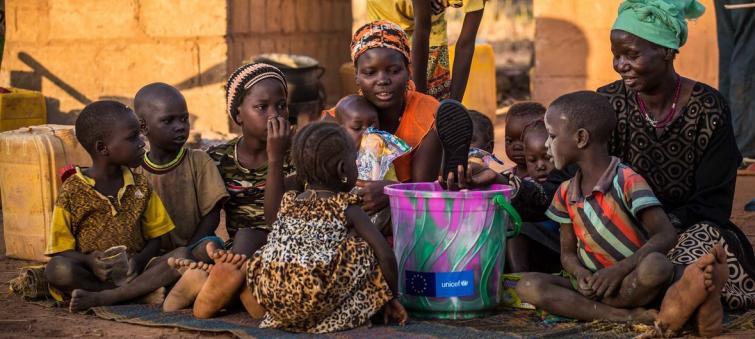
$2.5 trillion COVID-19 rescue package needed for world’s emerging economies
New York/IBNS: The economic fallout from COVID-19 is likely to get “much worse” before it gets better for some six billion people living in developing economies, the UN said on Monday, in an appeal for a $2.5 trillion rescue package to boost their resilience to further hardship.
According to new analysis from UNCTAD, the UN trade and development body, commodity-rich exporting countries will face a $2 trillion to $3 trillion drop in investment from overseas in the next two years.
An economic downturn in these emerging economies was already evident in the last quarter of 2019 – before the new coronavirus outbreak emerged in central China last December - said Richard Kozul-Wright, UNCTAD director of globalization and development strategies.
Crisis yet to come
“The health crisis is still to come in many developing countries,” he told UN News. “Now, if that crisis comes as these countries have been significantly weakened by the economic shockwaves from the crisis. And that is a…very vicious combination of an economic crisis and a health crisis. So we’ve got to find ways of strengthening the healthcare system and services in developing countries and building up resilience on that front very quickly.”
Rich industrial nations have already announced a $5 trillion global rescue package plan to provide an economic safety net to their businesses and workers.
This unprecedented measure should reduce the extent of their shock - “physically, economically and psychologically” - said Mr. Kozul-Wright.
It is also expected to create $1 trillion to $2 trillion of demand among the major G20 economies, boosting global manufacturing by two per cent, he writes in his latest report.
Recession looms
“Even so, the world economy will go into recession this year with a predicted loss of global income in the trillions of dollars - this will spell serious trouble for developing countries, with the likely exception of China and the possible exception of India”, Mr. Kozul-Wright warned.
UNCTAD believes that part of the problem for many developing countries is that informal workers form the backbone of their emerging economies, which amplifies their difficulties in responding to the crisis.
Four-point recovery plan
Faced with a “a looming financial tsunami” this year, UNCTAD’s four-pronged strategy initially calls for a $1 trillion investment injection for weaker economies.
This would come from so-called “special drawing rights” governed by the International Monetary Fund (IMF) which would need to “go considerably beyond” the 2009 allocation made in response to the global financial crisis, the agency’s report explains.
Coronavirus Portal & News Updates
Readers can find information and guidance on the outbreak of the novel coronavirus (2019-nCoV) from the UN, World Health Organization and UN agencies here.For daily news updates from UN News, click here.
The second measure is a debt freeze for distressed economies, involving an immediate standstill on sovereign debt payments, followed by significant debt relief.
By way of example, UNCTAD cites how half of Germany’s debt after World War Two, was cancelled.
Based on this precedent, around $1 trillion in debt should be cancelled this year, overseen by an independently created body, the UN agency maintains.
The third measure targets $500 billion investment in poorer countries’ emergency health services and related social relief programmes.
Finally, UNCTAD urges the implementation of State-led capital controls to curtail already surging capital outflows from these developing countries.
This would help to reduce a cash shortage driven by sell-offs in developing country markets and to arrest declines in currency values and asset prices.
UNCTAD package equals unpaid investment pledges
The proposed package is similar in size to the amount that would have been delivered to developing countries over the last decade if countries in the Development Assistance Committee of the Organisation for Economic Co-operation and Development had met their 0.7 per cent Official Development Assistance target.
“Advanced economies have promised to do ‘whatever it takes’ to stop their firms and households from taking a heavy loss of income,” said Mr. Kozul-Wright. “But if G20 leaders are to stick to their commitment of ‘a global response in the spirit of solidarity,’ there must be commensurate action for the six billion people living outside the core G20 economies.”
Photo caption and credit: UNICEF/Vincent Tremeau Developing countries like Burkina Faso may need extra support from the international community as a result of the COVID-19 pandemic.
Support Our Journalism
We cannot do without you.. your contribution supports unbiased journalism
IBNS is not driven by any ism- not wokeism, not racism, not skewed secularism, not hyper right-wing or left liberal ideals, nor by any hardline religious beliefs or hyper nationalism. We want to serve you good old objective news, as they are. We do not judge or preach. We let people decide for themselves. We only try to present factual and well-sourced news.







